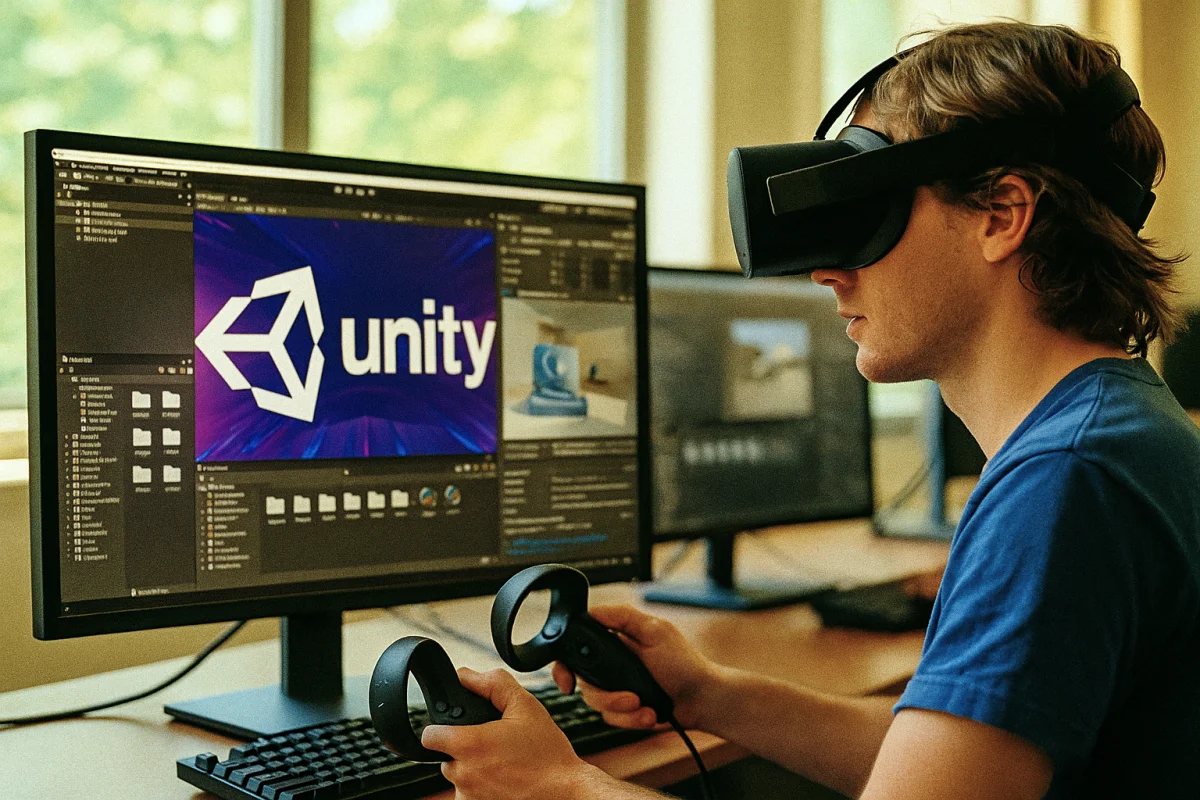How Are Virtual Reality Games Created in Unity?
Virtual Reality (VR) has become one of the most innovative trends in the modern gaming industry. VR games offer players a fully immersive experience, allowing them to become an active part of the virtual world. But how are such games created, and what role does Unity play in this process?

Unity — A Universal Platform
Unity is one of the most popular game engines, widely used for both traditional and VR game development. Its biggest advantage is multi-platform support, meaning that a single project can be deployed across Oculus Rift, HTC Vive, PlayStation VR, and other devices.
Core Stages of Creating a VR Game in Unity
- Project Initialization — starting a new Unity project with VR modules enabled.
- Scene Planning — building the 3D environment where players will interact, including objects, lighting, and textures.
- Controller Integration — enabling VR controllers for hand movement, gestures, and object interactions.
- Physics Systems — simulating realistic interactions between players and objects.
- Device Testing — ensuring smooth performance across different VR headsets.
Key Design Considerations
Designing VR games differs significantly from traditional game development. The primary focus is on user comfort. For example:
- Movement Simulation — must feel natural to prevent motion sickness;
- Intuitive Interaction — player actions should be simple and easy to understand;
- Graphic Optimization — VR requires high frame rates (90 FPS+) to maintain smooth and comfortable gameplay.
Tools and Add-Ons
Unity provides a wide range of packages that simplify VR game development:
- XR Interaction Toolkit — tools for managing VR controllers and interactions;
- Oculus SDK — libraries optimized for Oculus devices;
- SteamVR Plugin — integration with HTC Vive and SteamVR platforms.
Future Perspectives
VR technology is evolving rapidly, and Unity plays a crucial role in this progress. With new graphics engines, AI integration, and improved physics models, future VR worlds will become increasingly realistic. This transformation will not only revolutionize the gaming industry but also impact education, healthcare, and business applications.
Conclusion
Building VR games in Unity is a challenging yet highly creative process that merges technology, design, and imagination. Developers entering this field can become architects of tomorrow’s digital experiences. That’s why VR is not just about entertainment — it’s a gateway to new professional opportunities.
What do you think — will VR become the future of mainstream gaming, or remain a niche for specific genres?
✍ Article Author
- Registered: 26 July 2025, 15:34




 Silent Cat 🐾
Silent Cat 🐾